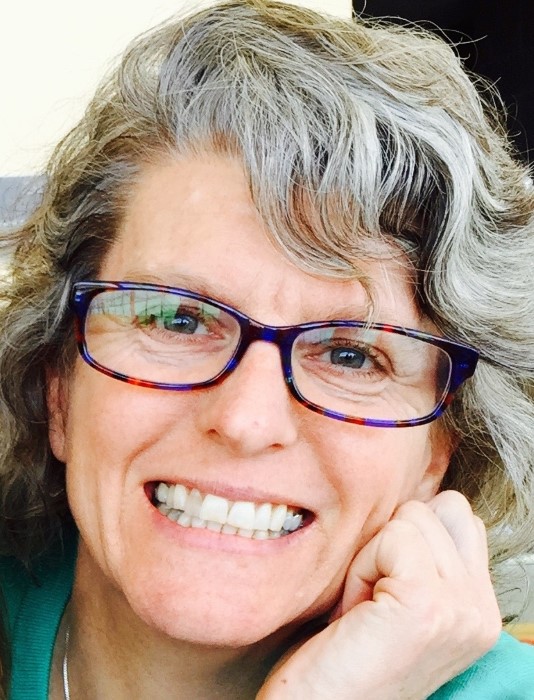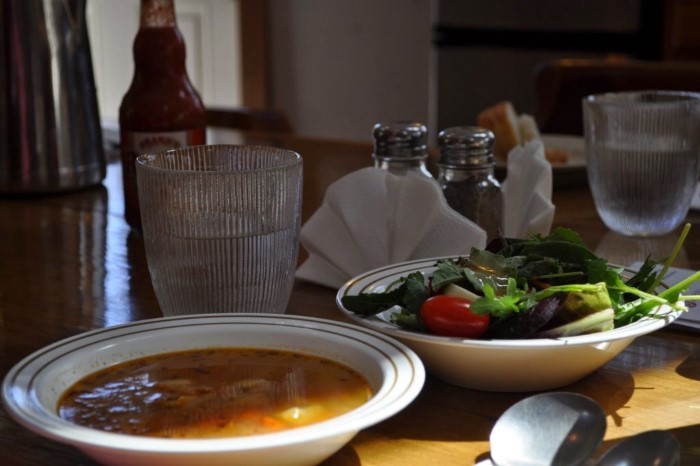 You are a Dietitian and Diabetes Educator with a focus on Mindful Eating. What drew you to the intersection of mindfulness and diabetes?
You are a Dietitian and Diabetes Educator with a focus on Mindful Eating. What drew you to the intersection of mindfulness and diabetes?
Prior to meditating on a consistent basis, I worked as a diabetes educator. I think most people imagine having diabetes means that they can’t eat certain foods or that they must radically change everything about their life. These thoughts are fueled by society and companies selling products targeting people with diabetes, but it’s not true. Having diabetes is a condition that requires you to listen to your body and to learn how to balance what you want to eat and need to eat. Mindfulness can help a person hear the story of “can and can’t” and let it go, providing a healing experience that you deeply crave.
Mindfulness and meditation are a type of “yoga for the mind” and help a person stretch the mind. During meditation, an individual becomes aware of the places that are closed and is invited to find and gently observe thoughts of “should,” “must,” and “not allowed,” until he/she can think without an authoritative voice. In the book that I co-authored with Michelle May, MD called Eat What You Love, Love What You Eat for Diabetes: A Mindful Eating Program for Thriving with Prediabetes and Diabetes, we explain that it isn’t possible to control your body or diabetes. However, you can be in charge of your diabetes and just that tiny shift from “control” to being “in charge” begins the process of shifting a person’s thoughts about blood sugar, care, and what changing to manage this condition might look like.

What do you see as the biggest food challenges with diabetes?
I see cost as the biggest challenge in diabetes care—all the costs, not just the food costs.
There is the cost of time: Thinking about what to eat and cook, not to mention shopping for and preparing meals, is time-consuming and, in our go-go-go world, few people have the luxury or have practiced living life at a sustainable pace.
There is the social cost of diabetes: Many people feel that they can’t attend certain events such as BBQs or parties because the food offered is “not allowed.” This notion fuels social isolation, which is associated with depression, substance abuse, and even worsening blood sugars!
There is the cost of enjoying food: For many people, this is no longer possible because they fear eating and have been erroneously led to believe that food alone is what contributes to elevated blood sugars.
And there is the cost of losing our identity, as most people’s cultures are tied to food. For many people, having diabetes means they can’t enjoy traditional foods and meals, which isn’t true!
As you can see, dietary change is not a simple process and being mindful of our options takes time and practice.

How do you work with your clients?
I see clients in person at the organization where I am employed as a diabetes educator. I do not see clients outside of my employer. Individuals who would like to explore mindful eating are encouraged to visit Mindful Eating for Diabetes where they can choose to purchase the book, Eat What You Love, Love What You Eat for Diabetes: A Mindful Eating Program for Thriving with Prediabetes and Diabetes or participate in the self-paced online program by the same name.
I also help professionals learn about mindfulness and mindful eating as it relates to diabetes care. Healthcare professionals can learn more about mindful eating and weight-neutral diabetes care by visiting either www.megrette.com or www.wn4dc.com. I am also co-owner or an international training program which helps explore the value of weight-neutral care for diabetes. To learn more about this online conference, visit www.wn4dcsymposium.com.

Craft projects at Mindful Eating Retreat
Can you give us examples of clients with diabetes and how you helped them through their food challenges?
Barbara came to me because she was afraid to eat. As we talked, it became clear that Barbara didn’t have a positive relationship with food. As she thought more about food and eating, she wanted to let go of the guilt, stop binge eating, and expand her diet to include new foods that didn’t impact her blood sugars as much. Working with Barbara, we focused on enjoying the experience of eating, and how enjoyment could guide food and eating choices to improve her overall blood sugars.
Lynn came to see me because she wanted a child. Because of her advanced age and an existing medical condition, Lynn was going to a fertility clinic to get pregnant. At the first appointment, Lynn began to cry, explaining that she felt guilty for her inability to get pregnant and that because she had diabetes, she feared that pregnancy would mean going on another strict diet and fearing food. Working together, we were able to dispel much of the fear and guilt associated with infertility and weight. It was a lightbulb moment when Lynn realized that women of all sizes can be infertile and that blame and shame about her body weren’t improving the situation. In our work, we focused on creating time for self-care and utilizing a new technology called a continuous glucose monitoring system, or CGMS. This allowed Lynn to understand when her blood sugar was elevated and to develop strategies to manage this, including diet, exercise, and medication.
Susan was angry when she initially saw me. She was angry that she had diabetes and that her family could eat whatever they wanted. She felt she didn’t have any “me time” and that managing her blood sugar would likely add to her endless list of chores. Susan really liked mindful eating because she felt heard. In fact, she asked, “Aren’t you going to give me a diet?” When I declined, she became curious, “So what is the purpose of coming here?” This was the first time she had taken time to think about what she valued and what she wanted to get from the session. Giving Susan this space to consider her needs allowed her to take charge of her health, blood sugar, and life. Susan was able to let go of her anger by talking with her adult family and stop feeling like she had to “do it all.” She delegated chores to create time in her schedule for self-care, allowing her to discover new ways to manage her health and blood sugars.

What’s your top piece of advice for helping people with diabetes achieve mindful eating?
Get support. Choosing the path of mindful eating is a path that rejects diet culture. Many clients explain that they need accountability or structure, but what I believe they really are asking for is support. They need support to make a “mistake,” to be human and not eat “perfectly.” They need permission and support to enjoy food, to really taste it and listen to their bodies. A fundamental aspect of mindful eating is learning how to connect with yourself and others, which is why we need support. Mindful eating isn’t about being “right” or “good;” it is about being present. There are so many things in your life that pull you from the present moment. Your inability to be present isn’t a failure or wrong, it is an indication that you simply need more practice.

A meal at a Mindful Eating Retreat
What resources do you recommend on mindfulness and diabetes?
The Center for Mindful Eating is an international nonprofit that provides resources for individuals and professionals to help them develop mindfulness and a mindful eating practice.
There are a growing number of mindful eating books; I recommend:
Mind to Mouth: A Busy Chick’s Guide to Mindful Mealtime Moments
The Mindful Eating Workbook: Simple Mindfulness Practices to Nurture a Healthy Relationship with Food
The Mindfulness-Based Eating Solution: Proven Strategies to End Overeating, Satisfy Your Hunger, and Savor Your Life
The book Body Kindness: Transform Your Health from the Inside Out–and Never Say Diet Again can help people move away from diet culture.
The resources at mindful.org and apps such as Insight Timer, Headspace, or Calm are helpful to create a mindfulness practice.
To my knowledge the only mindful eating books that focus on diabetes is the book Michelle May and I wrote: Eat What You Love, Love What You Eat for Diabetes: A Mindful Eating Program for Thriving with Prediabetes and Diabetes. The second edition of this book provides a weight-neutral approach to diabetes care which is essential to free yourself from diet-culture, body shame, and food guilt.
The Sweet Support Podcast offers 12 episodes which explore weight-neutral diabetes care.
The following professionals are providing weight-neutral diabetes care programs, many of which include mindfulness training:
Mindful Eating and Diabetes Care — Michelle May
Healthy Living With Diabetes — Bonnie Giller
HAES Care for Diabetes Concern — Rebecca Scritchfield
Diet Free Living for Diabetes — Adina Pearson
Fat Body Peace – Brenda Stephens
Watershed Wellness – DeAun Nelson
Connect with Megrette Fletcher
Email: Megrette@megrette.com
Website: Megrette.com
Weight Neutral for Diabetes Care
Online Training: Mindful Eating and Diabetes
Books:
Eat What You Love, Love What You Eat for Diabetes: A Mindful Eating Program for Thriving with Prediabetes and Diabetes
Check out the books below via this link:
Diabetes Counseling and Educational Activities: Helping Clients Without Harping on Weight
The Core Concepts of Mindful Eating
Discover Mindful Eating
Discover Mindful Eating for Kids
Social Media:
Facebook Page
Twitter
LinkedIn
Megrette Fletcher, M.Ed., RD. CDE is a registered dietitian and certified diabetes educator who has worked in diabetes care since 1995. Her interest in mindful eating started in 1999 when she began meditating on a consistent basis. In 2005, she co-founded The Center for Mindful Eating, an international nonprofit organization that explores the benefits of mindfulness and health. In addition to offering webinar trainings about the scientific benefits of weight-neutral diabetes care, mindfulness, and health, Megrette has written five books for professionals.






Why doesn’t this distinguish between which type of diabetes?
“I work with primary with type 2 diabetes. I run a support group for type 1 diabetes as well. Mindfulness and mindful eating are effective for all types of diabetes care and it can ease some aspects of diabetes distress.”